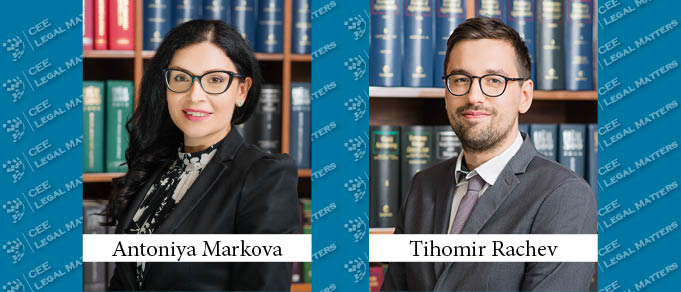As a result of standard monitoring of public procurement procedures contracts, in July 2021, the Bulgarian government announced that in the past two-and-a-half years, roughly BGN 8.6 billion (EUR 4.4 billion) were spent on in-house awards of public procurement contracts in Bulgaria.
In addition to this announcement, the Public Procurement Agency (PPA) issued an official guideline for the application of the in-house exceptions under Article 14(1)(5) – (7) of the Public Procurement Act. Since the in-house exceptions of the Bulgarian Public Procurement Act have been adopted in compliance with Directive 2014/24/EU of the European Parliament and of the Council of February 26, 2014, on public procurement and repealing Directive 2004/18/EC, the PPA relied heavily on European legislation and European Court of Justice (ECJ) case law.
First, the PPA provided valuable insight into the application of Art. 14(1)(5)(a) of the Public Procurement Act. According to this provision, public contracting authorities are allowed to carry out tasks to perform their functions by directly entrusting activities to a legal entity that they control. The PPA pointed out that the contracting authority must be able to exercise both structural and functional control over the legal entity. In this respect, the fact that the contracting authority is the sole owner of the economic entity’s capital indicates the existence of such control. However, this is not sufficient to exclude the application of the Public Procurement Act. To find that control falls within the scope of the PPA, the contracting authority must prove that it participates in the company’s management – for example, in decisions relating to the election of the management bodies, determining the business plan, reducing and increasing the capital, etc.
Secondly, the PPA also brought special attention to the exception under Art. 14(1)(7) of the Public Procurement Act, which refers to in-house awards in case of joint control by two or more contracting entities over a legal entity contractor. The guidelines underpin that the contractor must have the capacity to carry out the relevant activities itself (to provide the service, carry out the works, etc.). If the contractor transfers the performance of the activities covered by the contract to another person, this is considered hidden subcontracting of the public contract. The PPA explained that such subcontracting is not permissible as it is contrary to the basic idea pursued by the case law of the ECJ that the contract should be executed with the contractor’s own resources. At the same time, this might have the effect of circumventing the application of the Public Procurement Act, as well as restricting competition.
In its guidelines, the PPA highlighted that to ensure publicity of the contracts to which legislative exceptions apply, the Public Procurement Act introduces an obligation for contracting authorities to publish a contract award notice (Article 26, paragraph 1, item 3). For certain contracts, e.g., those of significant value, of strategic importance, or in which there is a serious public interest, the PPA advised that contracting authorities should announce their intention to conclude such a contract in advance by publishing a voluntary transparency notice in the Public Procurement Register, even though they are not legally required to do so. This approach is supposed to provide additional certainty as to the legality and stability of the contract after the expiry of the period for appealing the notice.
The PPA’s guidelines are a step in the right direction for the Bulgarian government in implementing the relevant European legislation effectively in force. There is no doubt that in-house awards are beneficial to society as the rules on public procurement should not affect the freedom of public authorities to implement the tasks entrusted to them to provide public services by using their own resources.
However, in these cases, higher scrutiny would also be in the best interest of society as the implementation of preventive mechanisms against potential abuse of the exceptions to public procurement legislation is a highly recommended good practice within the EU. By setting rules for interpreting the legislative exception, the Bulgarian government provides clarity and legal security to persons who might wish to benefit from it legitimately.
By Antoniya Markova, Partner, and Tihomir Rachev, Associate, Gugushev & Partners
This Article was originally published in Issue 9.4 of the CEE Legal Matters Magazine. If you would like to receive a hard copy of the magazine, you can subscribe here.




